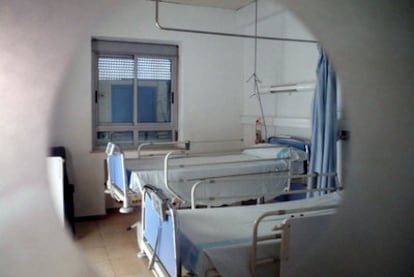Public healthcare cuts put Catalan government in a sick position
Hospitals order early patient discharges and put limits on diagnostic scans
Management at eight hospitals operated by the Catalan Health Institute (ICS) have ordered their medical teams to restrict most hospital admissions due to cuts ordered by the regional government. At the same time, officials at these centers are finding ways to reduce other healthcare costs by advancing patient discharge dates from hospitals and eliminating additional tests, such as MRIs, X-rays, CAT scans and nuclear medicine examinations that are used to reaffirm a medical diagnosis.
"No patient will be put at risk in order to save on a CAT scan," said a spokesman for the Union of Physicians. "But officials at these public hospitals only want to meet their budgets and making sure it won't affect the system. But either way, the patient will be affected," he warned.
The CCOO and UGT labor unions said that similar money-saving measures are taking place at other public and private hospitals.
"Doctors cannot base their diagnosis on these types of arrangements or approve early discharges when there are also cutbacks at hospital emergency rooms and in ambulance services," a union spokesman said.
Citizens are still staging sit-ins in protest at the cuts at half a dozen primary care centers, mostly in the region of La Selva. In some cases, practitioners themselves are rejecting the measures that are being imposed by hospital officials.
"We will just be admitting and testing patients with the usual medical criteria, but without thinking about the cuts they're asking from us," summarized Jordi Martí, union representative at Hospital Arnau de Vilanova de Lleida.
"Every hospital has its own list of cuts based on the type of patients they have. They just don't know where else to cut," said Juan García, the UGT official in charge of healthcare.
The Catalan government defended its actions as merely ordering hospital officials to make budgetary adjustments without imposing the form in which they should be applied.
"We do not know the needs of every hospital. We haven't given any specific order where these cuts should be made, but we trust they will make them where needed. We don't want to get involved in the day-to-day operations of each health center," said a Catalan health department spokesman.
Department chief Boi Ruiz has applied a 10-percent across-the-board cut, which amounts to about 1 billion eurosin savings.
"There is no evidence that citizens have been stressed out because of these cuts," Ruiz said on Tuesday.
The ICS, meanwhile, also said that each health center has its own responsibility to determine where to apply these cuts and that they have not been given specific instructions.
Marina Geli, the Catalan Socialist Party (PSC) official in charge of healthcare policy and a former regional health commissioner, warned that there would be serious consequences.
"Where have all the sick people gone? Have they just disappeared?" she asked.
The PSC said it would demand information from the regional government, which is run by Artur Mas of the Catalan nationalist CiU bloc, to determine what type of aftereffects Catalonia can expect, especially now that the flu season is just around the corner.

Meds from one agency
Although the savings on flu vaccines may appear modest - about 3.2 million eurosamong eight regions - the idea of creating a single centralized procurement body that would be in charge of distributing pharmaceuticals has demonstrated that the benefits could be far greater if it is expanded.
The Health Ministry, which has begun to resurrect the program to include other medicines and supplies, has sent a letter to regional health commissioners with a list of other pharmaceuticals that could be purchased by one centralized body. They include products such as flu vaccines for the 2012-2013 winter season to antibiotics and products such as absorbent adult diapers.
The idea of creating a central purchasing entity was ironed out during the March 18, 2009 meeting of the Inter-Territorial Council of the National Health System, the body that brings together representatives of the regions and central government. It was started as a pilot program for regions to purchase the flu vaccines that year but due to administrative problems it ran its course. Many regions had already signed up with laboratories to purchase vaccines at low cost.
Finally, on April 8, 2010 the Cabinet approved a framework agreement for acquisitions and the regions began showing interest. Aragon, Asturias, Baleares, Cantabria, Castilla y León, Valencia, Extremadura and Madrid all signed on to the program.
Tu suscripción se está usando en otro dispositivo
¿Quieres añadir otro usuario a tu suscripción?
Si continúas leyendo en este dispositivo, no se podrá leer en el otro.
FlechaTu suscripción se está usando en otro dispositivo y solo puedes acceder a EL PAÍS desde un dispositivo a la vez.
Si quieres compartir tu cuenta, cambia tu suscripción a la modalidad Premium, así podrás añadir otro usuario. Cada uno accederá con su propia cuenta de email, lo que os permitirá personalizar vuestra experiencia en EL PAÍS.
¿Tienes una suscripción de empresa? Accede aquí para contratar más cuentas.
En el caso de no saber quién está usando tu cuenta, te recomendamos cambiar tu contraseña aquí.
Si decides continuar compartiendo tu cuenta, este mensaje se mostrará en tu dispositivo y en el de la otra persona que está usando tu cuenta de forma indefinida, afectando a tu experiencia de lectura. Puedes consultar aquí los términos y condiciones de la suscripción digital.








































